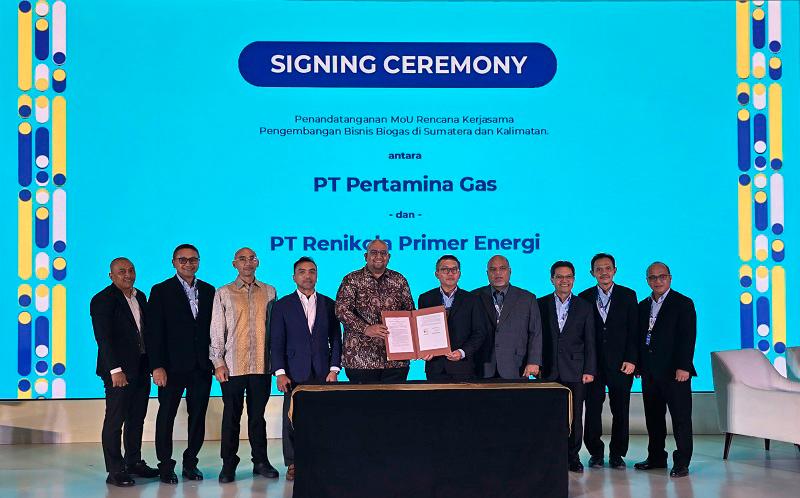JAKARTA: reNIKOLA Holdings Sdn Bhd, a pure-play renewable energy power producer, signed a MoU with Indonesia’s PT Pertamina Gas, through its wholly owned subsidiary PT reNIKOLA Primer Energi (PT RPE).
The MoU establishes a strategic collaboration for biogas business development across the Sumatra and Kalimantan regions.
The MoU was signed during the Pertagas Integrated Pipeline and Energy Summit (Pipes) in Jakarta, themed “Accelerating Clean Energy Transition through Infrastructure Integration.”
This collaboration aligns with Pertagas’s strategic goals to develop a reliable and integrated national gas pipeline infrastructure from upstream to downstream, including the advancement of renewable energy as a component of future energy distribution systems.
The agreement marks a concrete commitment by both parties to support the acceleration of the national energy transition and carbon emission reduction through the utilisation of renewable energy derived from organic waste such as palm oil mill effluent (Pome).
PT Pertamina Gas president director Gamal Imam Santoso said the company views biogas as a highly promising alternative energy source to support the national energy mix.
“With Pertagas’s infrastructure and expertise, along with reNIKOLA’s experience in renewable energy development, we are optimistic that this collaboration will bring real impact, both for the energy sector and communities surrounding our operational areas,” he said.
PT RPE director and CEO Dr Mohd Amran Mohd Yusof said this collaboration marks an important milestone in advancing a green economy based on local potential.
“We hope that synergy with PT Pertamina Gas will accelerate the realisation of biomethane projects that deliver positive social impacts, particularly in palm oil-producing areas and locations far from existing energy supply sources,” he said.
This partnership opens up significant opportunities for the development of biogas/biomethane production, purification, and distribution infrastructure that can be integrated with Pertagas’s gas pipeline network.
On the other hand, challenges such as ensuring a stable supply of raw materials, the scattered location of feedstock sources, and adaptation to green energy regulations remain key concerns.
Nevertheless, with strategic synergy and support from various stakeholders – both governmental and private – this collaboration is expected to overcome those challenges and serve as a replicable model nationwide.









